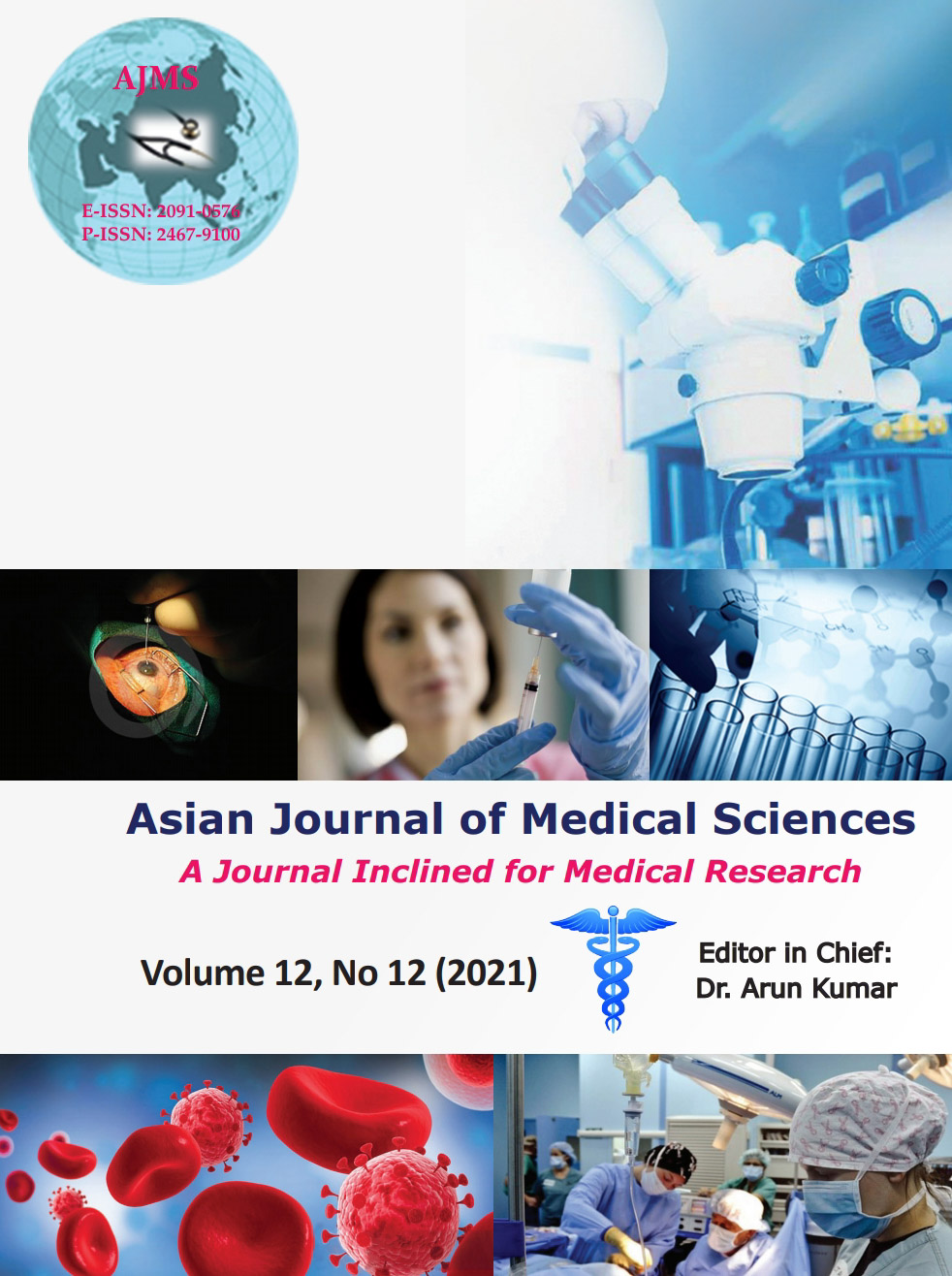Use of umbilical cord blood culture in the diagnosis of early onset neonatal sepsis among high risk mothers
Keywords:
Early onset sepsis, Neonatal mortality, Umbilical cord blood cultureAbstract
Background: Early onset neonatal sepsis (EONS) is one of the important causes of morbidity and mortality in neonates. Its early diagnosis and prompt treatment is essential and any delay in the diagnosis can have serious consequences including neonatal death. Blood culture is the gold standard test for diagnosis of neonatal sepsis. Umbilical cord blood culture (UCBC) is a painless procedure and technically less challenging. We conducted this study to evaluate use of UCBC for the diagnosis of EONS and compared it with the results of peripheral venous blood culture (PVBC) reports.
Aims and Objectives: The aim of the study was to evaluate UCBC for the diagnosis of EONS and compared it with the results of PVBC reports.
Materials and Methods: This was a hospital-based prospective cohort study consisting of 100 neonates who were at risk of EONS. The study was conducted in the Department of Pediatrics Sikkim Manipal Institute of Medical Sciences Gangtok between January 2018 and December 2019. Neonates found to be at risk of development of EONS were included in this study on the basis of a predefined inclusion and exclusion criteria. Immediately after birth blood samples were collected from both umbilical cord and peripheral vein and were sent to bacteriology lab. Sensitivity, specificity, positive predictive value, and negative predictive value of both the samples were analyzed.
Results: Out of 100 neonates in 32 (32%) EONS could be confirmed with positive sepsis screening results and/or demonstration of organisms on blood culture. Among the 32 neonates with EONS, 17 were found to be premature. The mean gestational age of newborns with EONS was found to be 35.2 weeks. The umbilical blood culture was found to have sensitivity and specificity of 100% and 74.4%, respectively, whereas peripheral vein blood culture was found to have sensitivity and specificity of 77.7% and 72.5%, respectively. The most common organism grown in our study was Escherichia coli.
Conclusion: UCBC is painless and technically less challenging method of blood sampling. It has been found to have a higher sensitivity as well specificity for the diagnosis of EONS as compared to peripheral venous blood sample.
Downloads
Downloads
Published
How to Cite
Issue
Section
License
Copyright (c) 2021 Asian Journal of Medical Sciences

This work is licensed under a Creative Commons Attribution-NonCommercial 4.0 International License.
Authors who publish with this journal agree to the following terms:
- The journal holds copyright and publishes the work under a Creative Commons CC-BY-NC license that permits use, distribution and reprduction in any medium, provided the original work is properly cited and is not used for commercial purposes. The journal should be recognised as the original publisher of this work.
- Authors are able to enter into separate, additional contractual arrangements for the non-exclusive distribution of the journal's published version of the work (e.g., post it to an institutional repository or publish it in a book), with an acknowledgement of its initial publication in this journal.
- Authors are permitted and encouraged to post their work online (e.g., in institutional repositories or on their website) prior to and during the submission process, as it can lead to productive exchanges, as well as earlier and greater citation of published work (See The Effect of Open Access).




